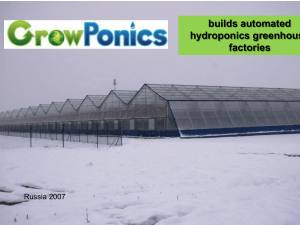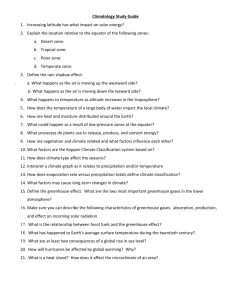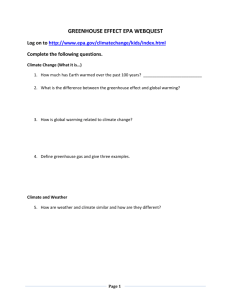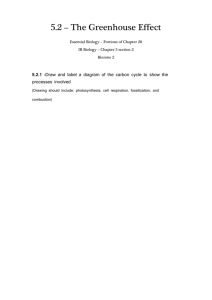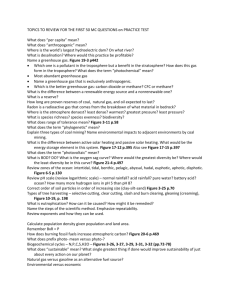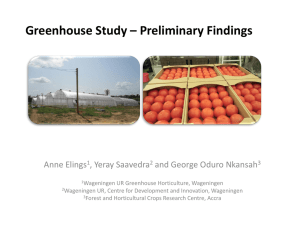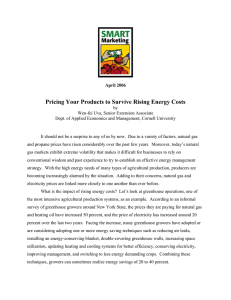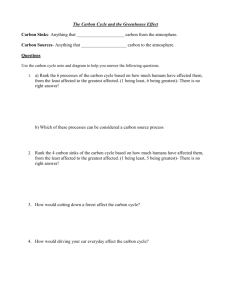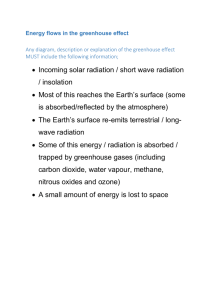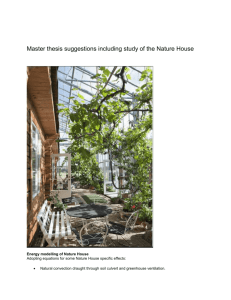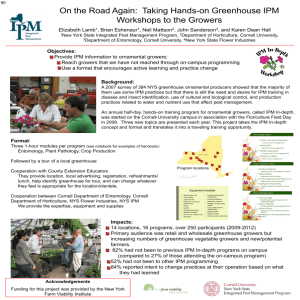Welgevallen hydroponics and greenhouse production hub
advertisement
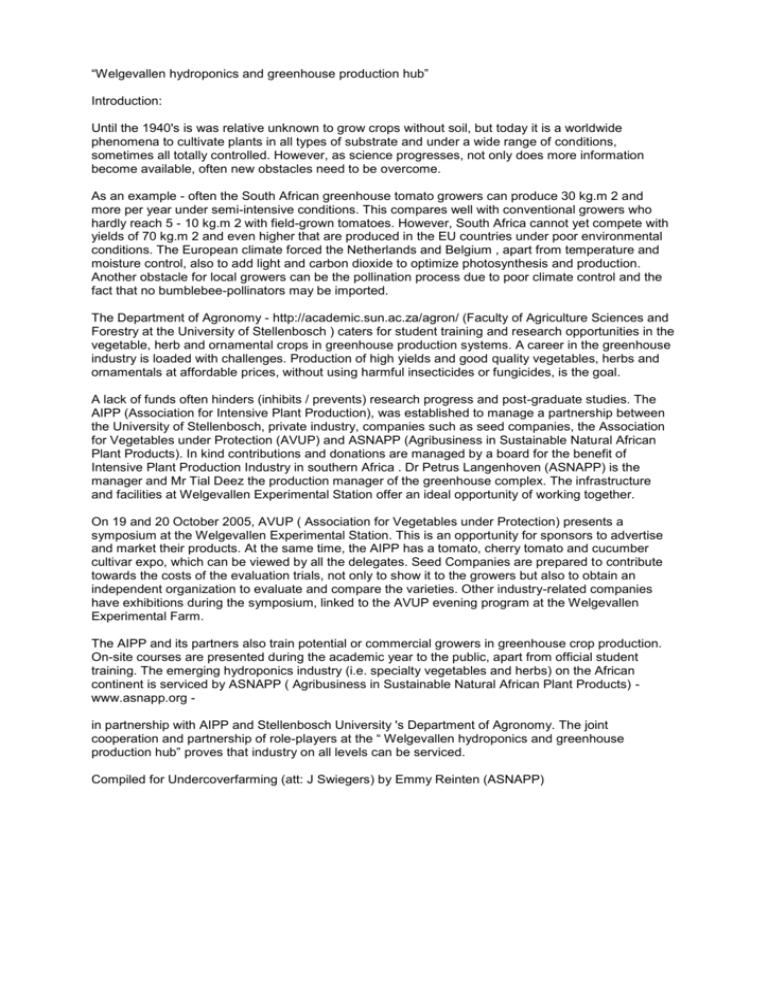
“Welgevallen hydroponics and greenhouse production hub” Introduction: Until the 1940's is was relative unknown to grow crops without soil, but today it is a worldwide phenomena to cultivate plants in all types of substrate and under a wide range of conditions, sometimes all totally controlled. However, as science progresses, not only does more information become available, often new obstacles need to be overcome. As an example - often the South African greenhouse tomato growers can produce 30 kg.m 2 and more per year under semi-intensive conditions. This compares well with conventional growers who hardly reach 5 - 10 kg.m 2 with field-grown tomatoes. However, South Africa cannot yet compete with yields of 70 kg.m 2 and even higher that are produced in the EU countries under poor environmental conditions. The European climate forced the Netherlands and Belgium , apart from temperature and moisture control, also to add light and carbon dioxide to optimize photosynthesis and production. Another obstacle for local growers can be the pollination process due to poor climate control and the fact that no bumblebee-pollinators may be imported. The Department of Agronomy - http://academic.sun.ac.za/agron/ (Faculty of Agriculture Sciences and Forestry at the University of Stellenbosch ) caters for student training and research opportunities in the vegetable, herb and ornamental crops in greenhouse production systems. A career in the greenhouse industry is loaded with challenges. Production of high yields and good quality vegetables, herbs and ornamentals at affordable prices, without using harmful insecticides or fungicides, is the goal. A lack of funds often hinders (inhibits / prevents) research progress and post-graduate studies. The AIPP (Association for Intensive Plant Production), was established to manage a partnership between the University of Stellenbosch, private industry, companies such as seed companies, the Association for Vegetables under Protection (AVUP) and ASNAPP (Agribusiness in Sustainable Natural African Plant Products). In kind contributions and donations are managed by a board for the benefit of Intensive Plant Production Industry in southern Africa . Dr Petrus Langenhoven (ASNAPP) is the manager and Mr Tial Deez the production manager of the greenhouse complex. The infrastructure and facilities at Welgevallen Experimental Station offer an ideal opportunity of working together. On 19 and 20 October 2005, AVUP ( Association for Vegetables under Protection) presents a symposium at the Welgevallen Experimental Station. This is an opportunity for sponsors to advertise and market their products. At the same time, the AIPP has a tomato, cherry tomato and cucumber cultivar expo, which can be viewed by all the delegates. Seed Companies are prepared to contribute towards the costs of the evaluation trials, not only to show it to the growers but also to obtain an independent organization to evaluate and compare the varieties. Other industry-related companies have exhibitions during the symposium, linked to the AVUP evening program at the Welgevallen Experimental Farm. The AIPP and its partners also train potential or commercial growers in greenhouse crop production. On-site courses are presented during the academic year to the public, apart from official student training. The emerging hydroponics industry (i.e. specialty vegetables and herbs) on the African continent is serviced by ASNAPP ( Agribusiness in Sustainable Natural African Plant Products) www.asnapp.org in partnership with AIPP and Stellenbosch University 's Department of Agronomy. The joint cooperation and partnership of role-players at the “ Welgevallen hydroponics and greenhouse production hub” proves that industry on all levels can be serviced. Compiled for Undercoverfarming (att: J Swiegers) by Emmy Reinten (ASNAPP)
